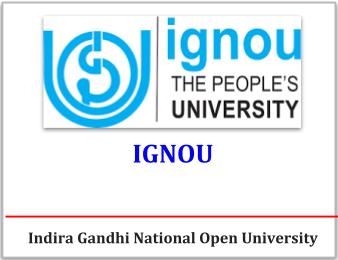IGNOU HISTORY NOTES : Modern India - FREEDOM MOVEMENT AND NATIONALIST LITERATURE

IGNOU HISTORY Study Notes for IAS, UPSC Exams
Modern India 1857-1964
FREEDOM MOVEMENT AND NATIONALIST LITERATURE
Structure
23.0 Objectives 1 23.1 Introduction
23.2 Literature in the 19th Century
23.2.1 Bengali
23.2.2 Gujarati I 23.2.3 Hindi
I 23.3 Literature in the 20th Century
23.4 Let Us Sum Up ,
23.5 Key Words
23.6 Answers to Check Your Progress Exercises
23.0 OBJECTIVES
In the previous blocks, you studied the spread of nationalist ideas, throughout India through a series of political activities and movements. This Unit informs you about the contribution of literature in this process. After reading this Unit you will:
- I become familiar with the literary contribution of the leading writers in various Indian
- languages,
- understand the political content of these literary works, and 1
- learn the peculiar characteristics of this political content.
23.1 INTRODUCTION
Literature played a significant role in the struggle for India's freedom. Beginning with the 19th century, when nationalist ideas began to emerge and literature in different Indian languages entered its modem phase, more and more writers began to employ I literature for patriotic purpose. Most of them, in fact, believed that because they belonged to an enslaved country, it was their duty to create Literature of a kind that 1 would contribute to the all-round regeneration of their society and pave the way for ! national liberation. Even when freedom from the British rule had not yet emerged as a I programme of any major political organisation or movement, and the Indian National Congress was concerned only with constitutional agitation, the realisation of subjection and the need for freedom had begun to be clearly expressed in literature. With the passage of time, as the freedom movement began to attract larger sections of the people, and the demand for freedom became more insistent, literature strengthened the growing idealism of the people. But it also did something more. Besides inspiring people to make all kinds of sacrifices for the cause of the country's liberation, literature also brought out the weaknesses of the nationalist movement and its leaders. In the following sections we shall take a look at both of these aspec
23.2 LITERATURE IN THE 19TH CENTURY
It will not be possible for us to consider literature in all the major Indian languages. For purposes of convenience we shall confine ourselves mainly to three languages: Hindi, Gujarati and Bengali. We shall notice that similar sentiments and ideas found manifestation in the literature of all three languages. This is 8 striking similarity that is reflected in the literature of all the Indian languages. And this shows a broad identity of sentiments and ideas in relation to the freedom movement all over the country. It was mainly during the later half of the 19th century that political associations and national consciousness along modern lines emerged in different parts of the country. The foundation of the Indian National Congress in 1885 was, in a way, the culmination of these earlier developments. T rature produced during this period, as also later, was not only influenced by natio nsciousness; in turn it also influenced the character and pattern of national consciousness
23.2.1 Bengali
There are two towering fi nals of early modern Indian literature. They are Bankimchandra Chattopa 38-94) and Govardhanram Madhavaram Tripathi (1855-1907). Besides bein both of them were powerful intellectuals who made it their mission to problems of their society and country. Their novels were intended to untrymen with patriotic sentiments. They, especially Bankim, a1 that compelled their readers to think about the causes of the existing w their country. Bankim even brought out a journal - the Bangadatsban - view to educating and inspiring as many of his countrymen as possible often written in a humorous and sarcastic style that entertained the re mpelled him or her to think. The combination of entertainment and even more effective in the novels.
Click here to download full Chapter
Courtesy: eGyanKosh


